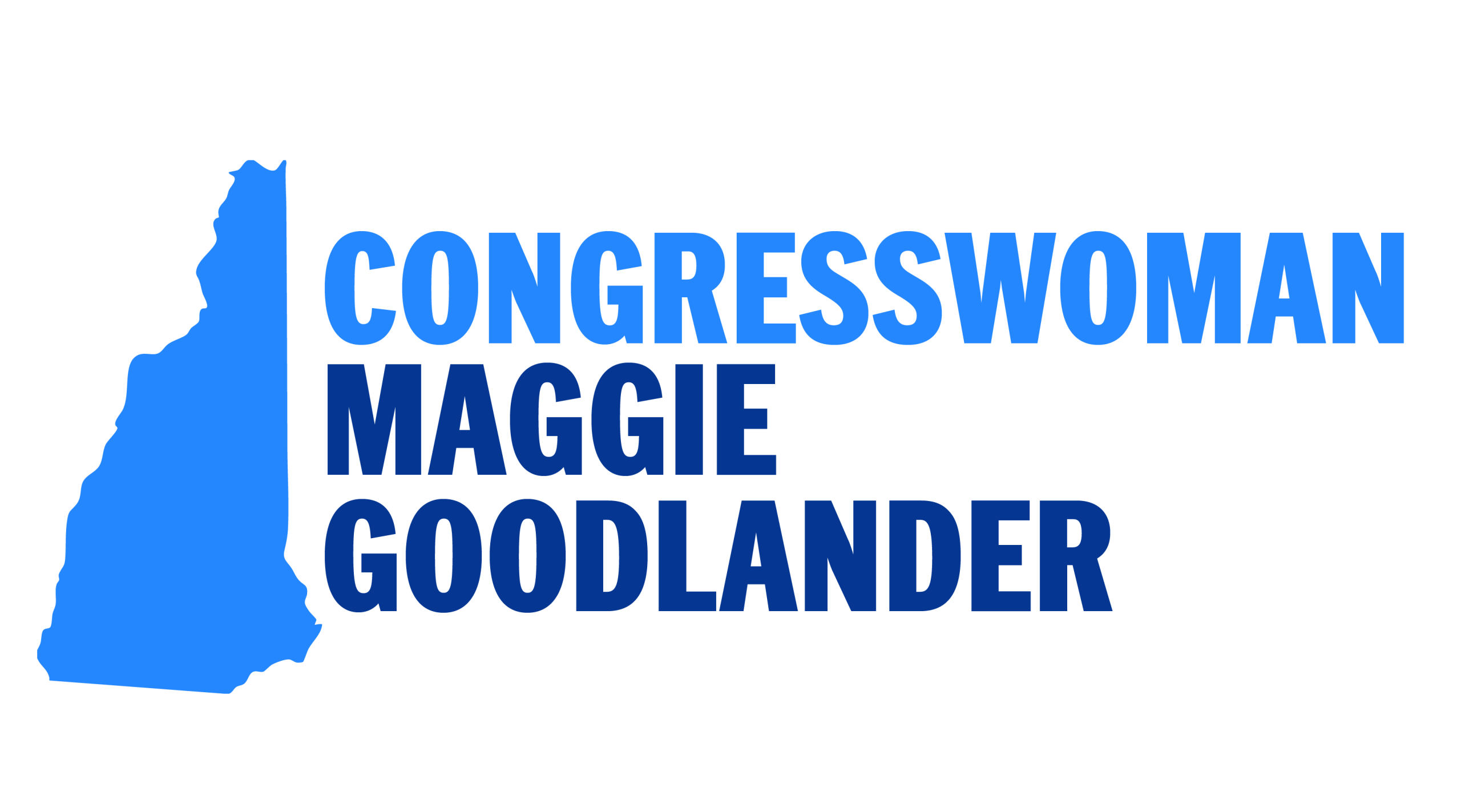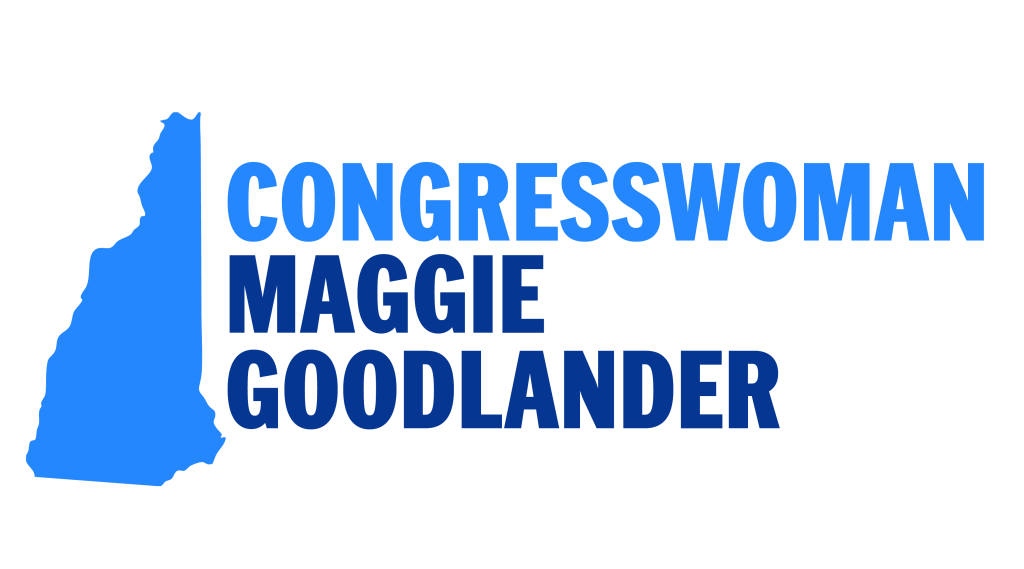NASHUA, NH – Congresswoman Maggie Goodlander (NH-02) met with staff, clients, and allied healthcare professionals of the Nashua Center to discuss the pending cuts to Medicaid. The conversation was about the implications of the FY 2025 reconciliation bill passed by the House of Representatives.
The Nashua Center provides specialized care for children and adults with developmental disabilities or acquired brain disorders throughout New Hampshire. The center was founded in 1973. They provide services to about 250 children and 100 adults with a staff of 90 and 30 paid roommates for their residential program.
The bill is pending in the US Senate, and Congresswoman Godlander is realistic about the Democratic unlikely potential to stop or modify the level of cuts and policy changes in the current version of the bill. That does not mean she is not determined to try and enlist the public to join in the challenge.
“I think the reason that we’re still in this fight and this bill has not been signed into law yet, I really believe, is because of the advocacy that we’ve heard all across the country, people putting a human face and clear consequences for, you know, the Nashua Center is 98% funded through Medicaid. This is the lifeblood of what makes this organization possible,” said the Congresswoman.
“They’re the biggest cuts to Medicaid in American history. And I’ve heard nothing but two words to describe them: devastating and catastrophic,” she added.
Bobbie Bagley, the Director of the Nashua Health Department, added another description to those Goodlander referred to.
“We have the word devastation, I think the word that we’re missing is also shameful this is shameful that we’re doing this to our own, members of our community with the idea of we’re saving money because we’re not and that we’re identifying waste and fraud and we’re really not. That percentage is so small compared to the damage that’s going to be done.”
“If this does actually pass you’ve got not just the individuals that receive services through Medicaid as their primary insurance, you’ve got the workforce, you’ve got the services you’ve got a lot of other things that are tied into the biggest source of income that comes into our state to provide these services and so I don’t know how that piece is getting lost but for me that’s shameful.”
Jim Piet, a retired PR Specialist for the NH Department of Education, and his wife Pat Vincent-Piet both have cerebral palsy. As advocates for the disability community, Jim, with the assistance of Pat, described their efforts to present their concerns in Concord. They were able to meet with Governor Ayotte, and they acknowledged that the Governor was polite and heard their concerns. They also felt dissatisfied that she would not commit to protecting the resources that are at risk.
Expressing his concern for the overall community, Jim Piet said, “My concern is not only Medicaid, but the Association of Community Living that funds and protects the council, the DRC, Disability Rights Center, and the Institute on Disability. We need the Medicaid funding, but we also need to keep those three units intact. Because without them, our rights are going to be stripped away.”
Iraida Muñoz, a Public Health Strategist for the Nashua Department of Health, says she is concerned with the potential impacts of the cuts. She added her concerns with the anti-immigration policies of the Trump administration and how people are intimidated and more reluctant to seek services.
“They are afraid of talking, and so how many benefits are they losing, right? There are many things they are scared to talk about because there’s just so much fear due to the stigma about their race and ethnicity, and culture behind it, so there are many barriers between those things,” said Muñoz.
Emily Manire, Executive Director of the Nashua Center, expressed concerns with the policy and processes added for patient qualification for Medicaid. At the same time as funding is reduced, process requirements grow, and other things like work requirements are added, the administration is reducing the workforce and infrastructure to administer these demands.
“Right now, we have an annual redetermination of Medicaid. That’s already a barrier. So if it becomes twice a year or quarterly, you know, I mean, to me, if I’m being candid, the message is it’s making it harder for people to get Medicaid, access to Medicaid, and then people fall off those rolls. So for us as an organization, it’ll be more administrative work to make sure that that doesn’t happen,” said Manire.
Goodlander stressed the importance of public advocacy at all levels of government, as well as importance of the governor’s role in dealing with the effects of these federal budget decisions.
“I do think the governor is an incredibly important person in all of this for a whole range of reasons, including because very few people have actually thought about what the implications are of this federal bill and of everything that’s on the table at the state level. Plus, everything that’s just happened in towns across the state in town meetings, where we are on a real precipice here. She, of all people, should be feeling the intense pain that’s going to be inflicted on the state and ultimately on families. The state is going to be under incredible pressure. So I do think she’s important,” Goodlander said.
One potential damage Goodlander described was, “Hospitals are going to get crushed by this bill, too. A number of rural hospitals in our state have said to me in no uncertain terms, even hospitals that have got the best balance sheets right now, they don’t know if they can weather this storm. So we’re going to see hospitals closing down.”















